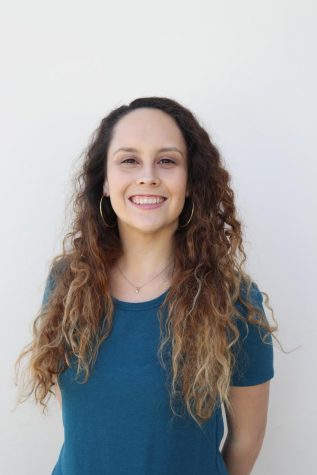While success stories and celebrations of people like Martin Luther King Jr. and Ava Duvernay have surfaced in many student’s minds over the last month, for others, the struggles these leaders faced have hardly gone. Junior journalism major Magdalen Rath, also vice president of Black Student Association and intern of the Chocolate Chat affinity group, gives a glimpse into how her own background and passion for activism has affected her life at Biola.
Q: WHAT IS YOUR EXPERIENCE AT BIOLA AS AN AFRICAN AMERICAN WOMAN?
A: “As an African American woman, the Biola experience can be a very lonely one. There’s only about 50 black women, and that number is always fluctuating, because people are always transferring in and out. It can be very lonely, but it can also be very empowering. Because a lot of times, we are the only black woman in our classroom. I have one other class with another black woman, and so you have a lot of influence. You can really change people’s perception of what black womanhood looks like and especially from a biblical lense. However, that is exhausting, because every time you enter a classroom, every time you walk around campus, every time you go into Commons, it’s in the back of your mind that you’re constantly redefining what your existence means in the space.
“That’s been a part of my Biola experience. And because of that, because of the influence that I’ve kind of germinated through just existing here, I have been able to have so many leadership opportunities and see myself flourish and grow. A lot of times though, that’s not necessarily because I have a lot of support in what black womanhood is, but more if you’re here, you have to rise to the challenge. Going to class can glorify God. I think that’s something I’m always reminding myself. Or going into Commons, I can glorify God. I can be brave in just doing that small step. And it seems really little, but it isn’t. I know people who don’t go on certain parts of the campus because they feel like they’re the only ones. They feel like they’re getting stared at or subjected. The black women on this campus are fighters, and they’re brilliant and beautiful and they’re claiming that for themselves every single day.”
Q: ARE THERE ANY ADVERTISITIES THAT YOU FACE?
A: “Honestly, there are a lot of challenges. I think even the black community here is so broken, and people who honestly aren’t black don’t really see the brokenness. But [between] black men and women, there’s a separation, so everytime we have an event, whether its BSA or an affinity group with Iron Sharpens Iron and Chocolate Chat, it’s a victory because we’re getting men and women together.
“A lot of times, in this context whether its evangelical or just higher education, black students have the opportunity to either assimilate or become activists. I personally have chosen the role of activist because that married well with a lot of my passions. That in itself creates the divide between the black community, because some students get mad at other students for kind of “white-washing” themselves or toning down themselves to better integrate into the majority culture on campus. Other students, like myself, have been viewed as loud or angry, which are very stereotypical terms, especially as a black woman. There’s so many layers to what black existence looks like. I mean globally and even nationally, but even in this Biola Bubble, there’s so many complexities.
“As a black person, you’re always second guessing yourself and interactions, so certain interactions with certain faculty we warn each other. It’s a sad reality, but everyone has biases and prejudices especially with the political climate right now and the historical context of what blackness has meant in America. As a black person, you always have to be aware.”
Q: IS THERE ANYTHING THAT THE BIOLA CAMPUS COULD DO TO MAKE IT EASIER? WHAT WOULD MAKE IT BETTER?
A: “Honestly, we have to start from the top. We need to change policies that would make it easier for people of ethnic backgrounds to even apply and get into Biola. Like anywhere, that’s the reason why there’s not a big population, or not a lot of diversity. I think a thing that Biola and other universities haven’t acknowledged is that even if the population of black or Latino or Asian American students or even global students increases, you have to acknowledge that there’s a campus culture, and that at Biola its reflective of Caucasian culture. The norm, which doesn’t include black identity or Latino identity. So I think Biola needs to address that, and a viable way to do that is to hire more faculty of color and educate the existing faculty continuously. Whether that means to integrate more voices in Talbot’s curriculum, because everyone takes Bible classes right? So why don’t we have more women? Why don’t we have more black theologians, more Latino theologians, more Asian theologians? There’s so much wisdom that we’ve neglected to pull from, and that would be a viable way to change the culture and make it more inclusive. It will push Biola to the next step, because universities are becoming more diverse, so it’s becoming imperative that they adapt and move forward.”







